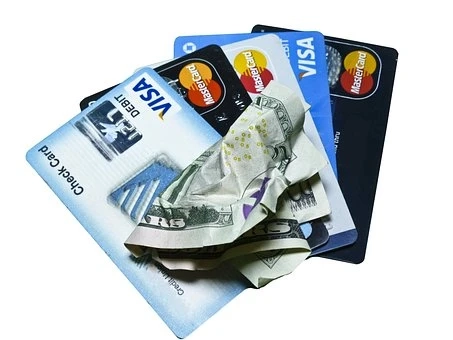Credit cards can play a vital role in building a strong credit history, but whether their usage is considered halal or haram is a matter of debate among Islamic scholars.
Credit cards have become an integral part of our daily lives. They offer convenience and security when making purchases, and they also provide a way for individuals to establish and maintain a strong credit history. Having a good credit history is essential for obtaining loans, mortgages, and other forms of credit, and credit cards are one of the easiest and most convenient ways to establish and build credit.
Credit cards work by allowing individuals to borrow money from a lender and pay it back over time with interest. The amount of credit available to an individual is determined by their credit score, which is based on their credit history. When individuals use their credit cards responsibly, they are demonstrating to lenders that they are trustworthy borrowers who are likely to pay their debts on time. This, in turn, leads to a higher credit score, which can make it easier to obtain loans and other forms of credit in the future.
However, there is a debate among Islamic scholars about whether the use of credit cards is halal or haram. Some argue that credit cards are haram because they involve riba (usury), which is forbidden in Islam. Riba refers to the practice of charging interest on loans, and it is considered haram because it is seen as a form of exploitation. However, others argue that credit cards can be used in a halal way if they are used responsibly and the interest charged is reasonable.
One way to use credit cards in a halal way is to pay off the balance in full every month. This eliminates the need to pay interest and eliminates the possibility of falling into debt. Additionally, Islamic scholars recommend using credit cards that offer a grace period, which allows individuals to pay off the balance in full without incurring any interest.
Another way to use credit cards in a halal way is to use them for emergencies only. This ensures that the credit card is used for a necessary and unavoidable expense, rather than for frivolous or unnecessary purchases. Additionally, Islamic scholars recommend using credit cards that offer cashback or rewards, as long as the rewards do not involve riba or other haram practices.
In conclusion, credit cards can play a vital role in building a strong credit history, but whether their usage is considered halal or haram is a matter of debate among Islamic scholars. However, by using credit cards responsibly, paying off the balance in full every month, and using credit cards only for emergencies, individuals can use credit cards in a halal way. Individuals need to educate themselves on the Islamic perspective of credit cards and make a decision that aligns with their religious beliefs.
Credit Card Balance Transfers: How They Work and Whether They're Right for You
A credit card balance transfer is a process where an individual moves the balance of one or more credit cards to a new card with a lower interest rate. This can be an effective way to save money on interest charges and pay off credit card debt faster.
When an individual initiates a balance transfer, they will typically be required to provide the account information for the credit card(s) they wish to transfer the balance from, as well as the account information for the new card. The new card issuer will then pay off the balance on the old card(s) and transfer it to the new card.
There are a few things to keep in mind when considering a balance transfer. Firstly, most credit card issuers will charge a balance transfer fee, which is usually a percentage of the amount being transferred. This fee can range from 3-5% of the total balance, so it's essential to factor this into the overall cost of the transfer.
Secondly, balance transfers typically come with a promotional interest rate, which is lower than the standard rate offered by the credit card issuer. This promotional rate is usually only available for a limited time, typically 6-12 months, after which the standard rate will apply. It's essential to pay off the transferred balance before the promotional rate expires to avoid incurring additional interest charges.
Lastly, balance transfers can be a great option for those who are struggling to pay off high-interest credit card debt, but they may not be the best option for everyone. For example, if an individual has a good credit score and can qualify for a low-interest credit card, they may be better off applying for a new card instead of transferring their balance.
In conclusion, a credit card balance transfer can be an effective way to save money on interest charges and pay off credit card debt faster. However, it's essential to consider the balance transfer fee, promotional interest rate, and expiration date, before making a decision. It's also important to consider other options, such as applying for a new low-interest credit card, to determine the best course of action for your financial situation.
0


